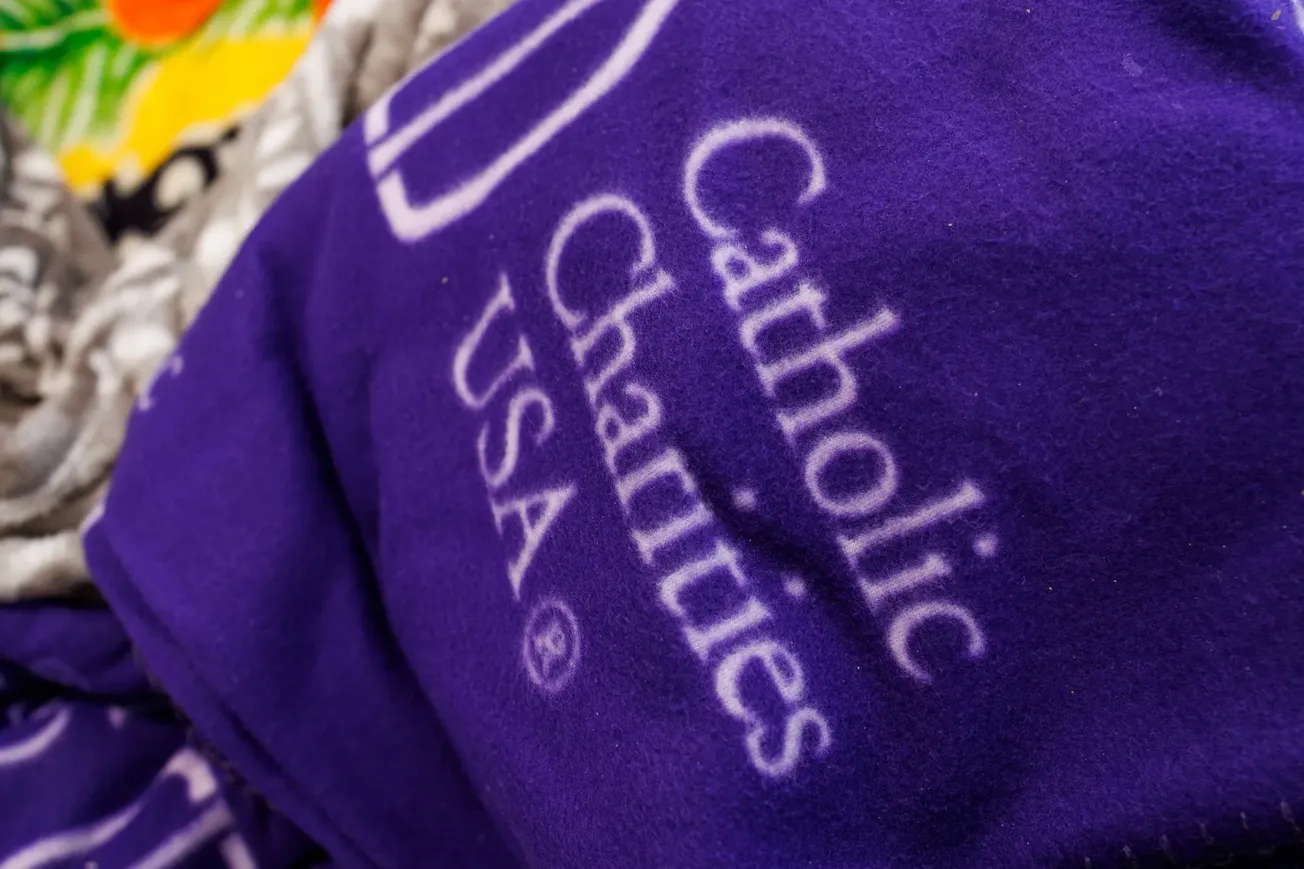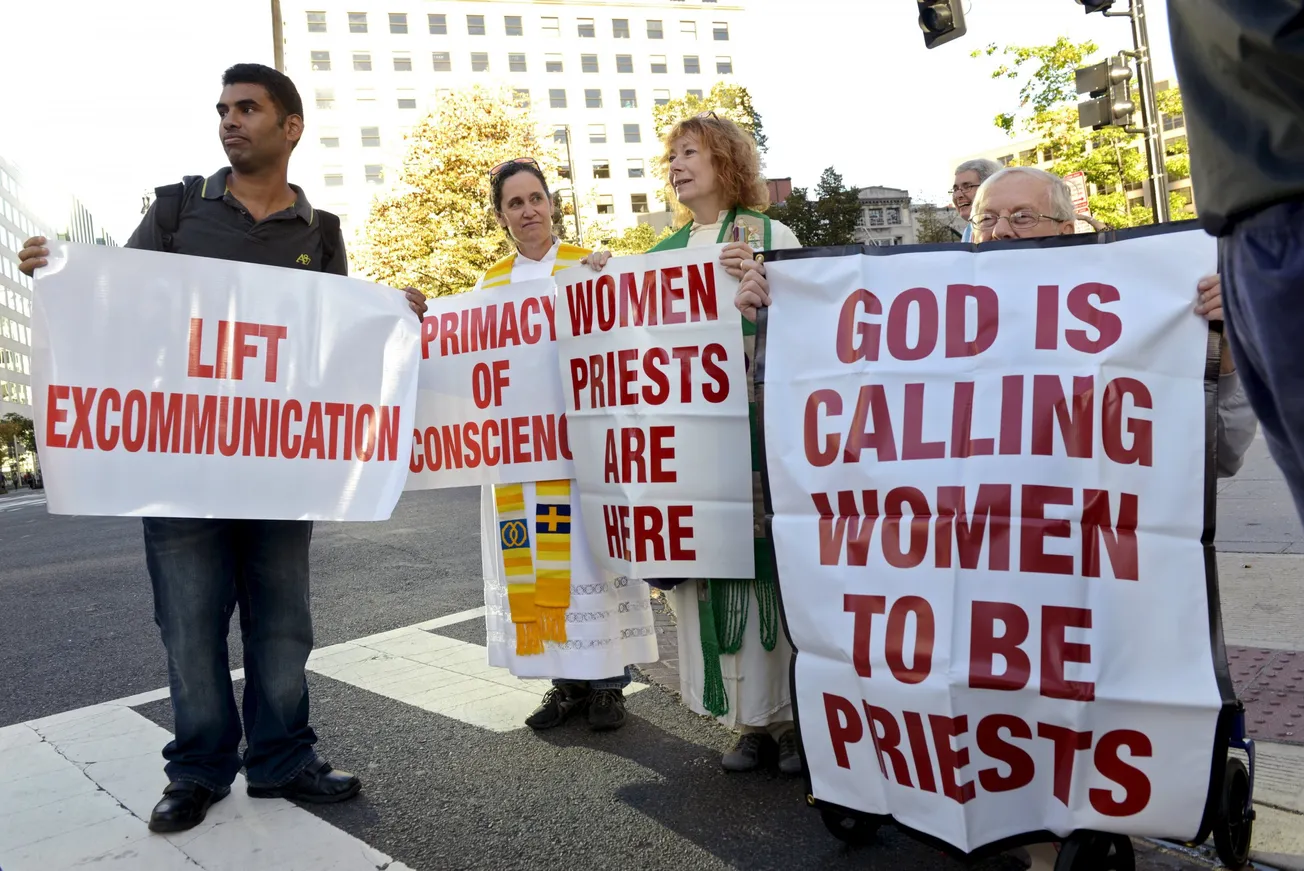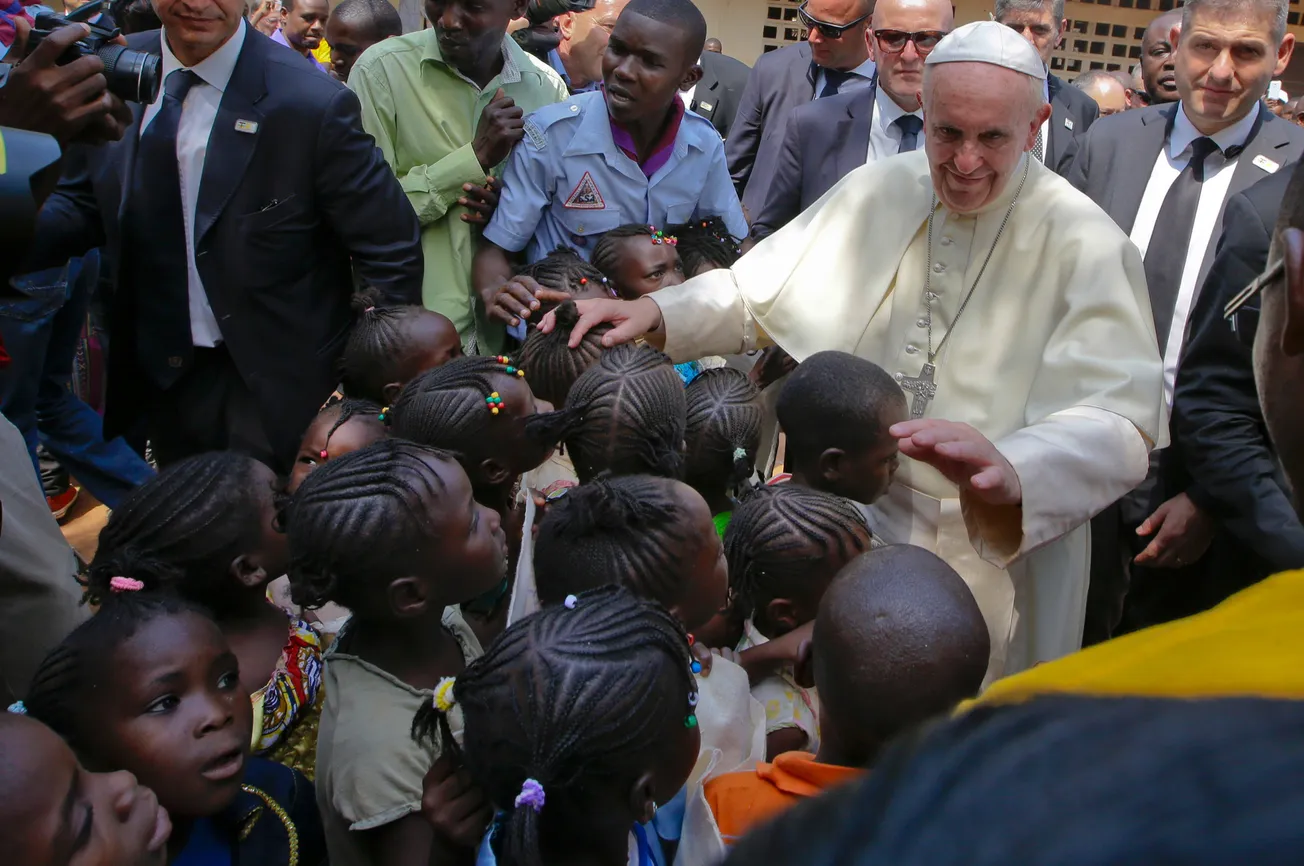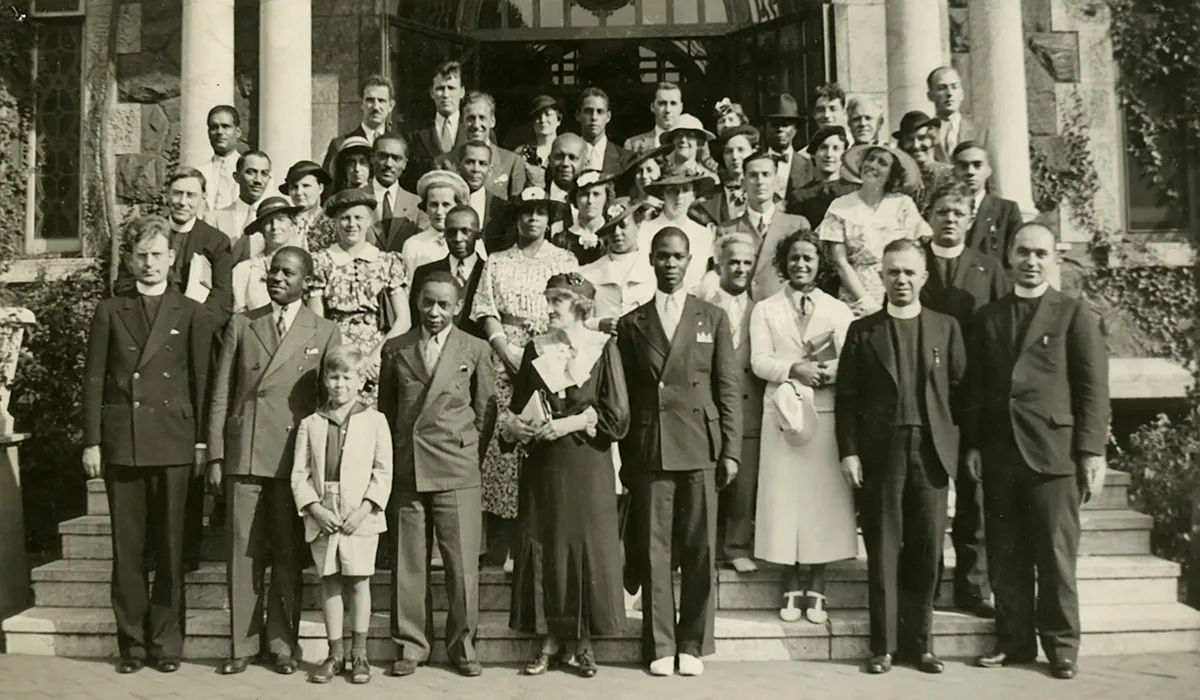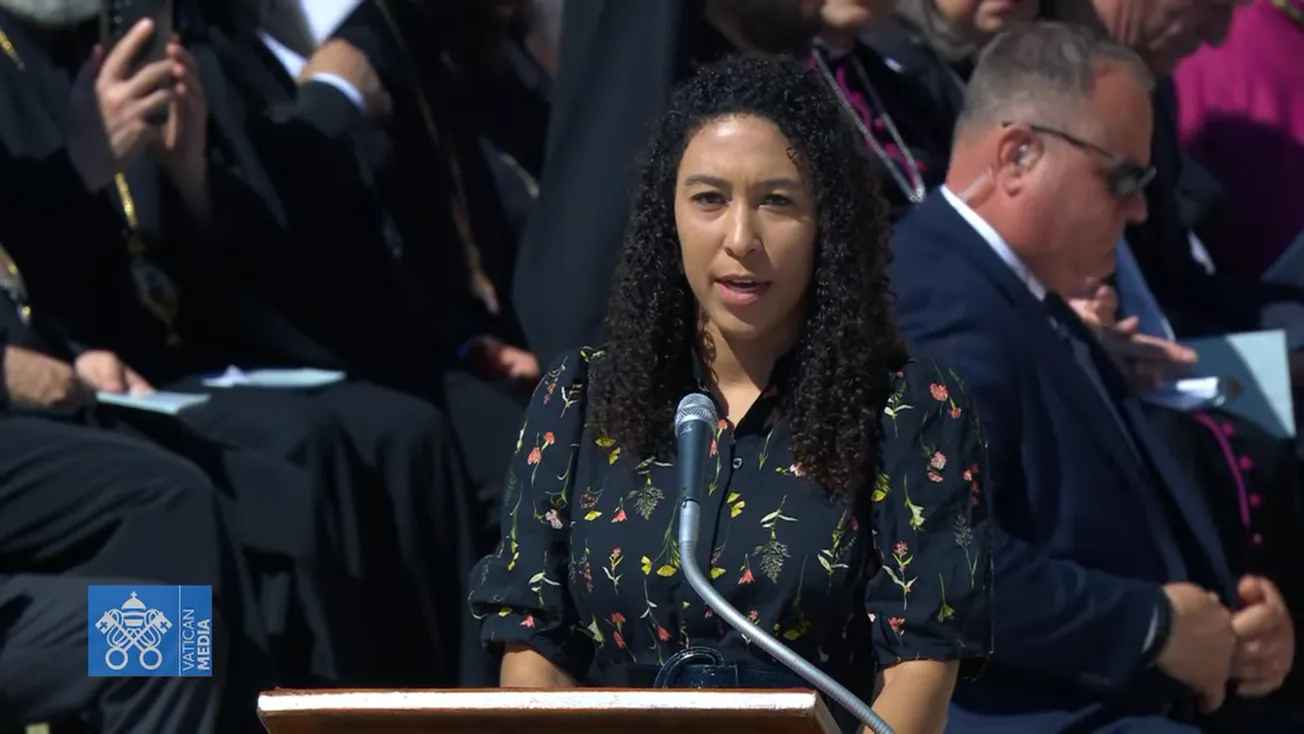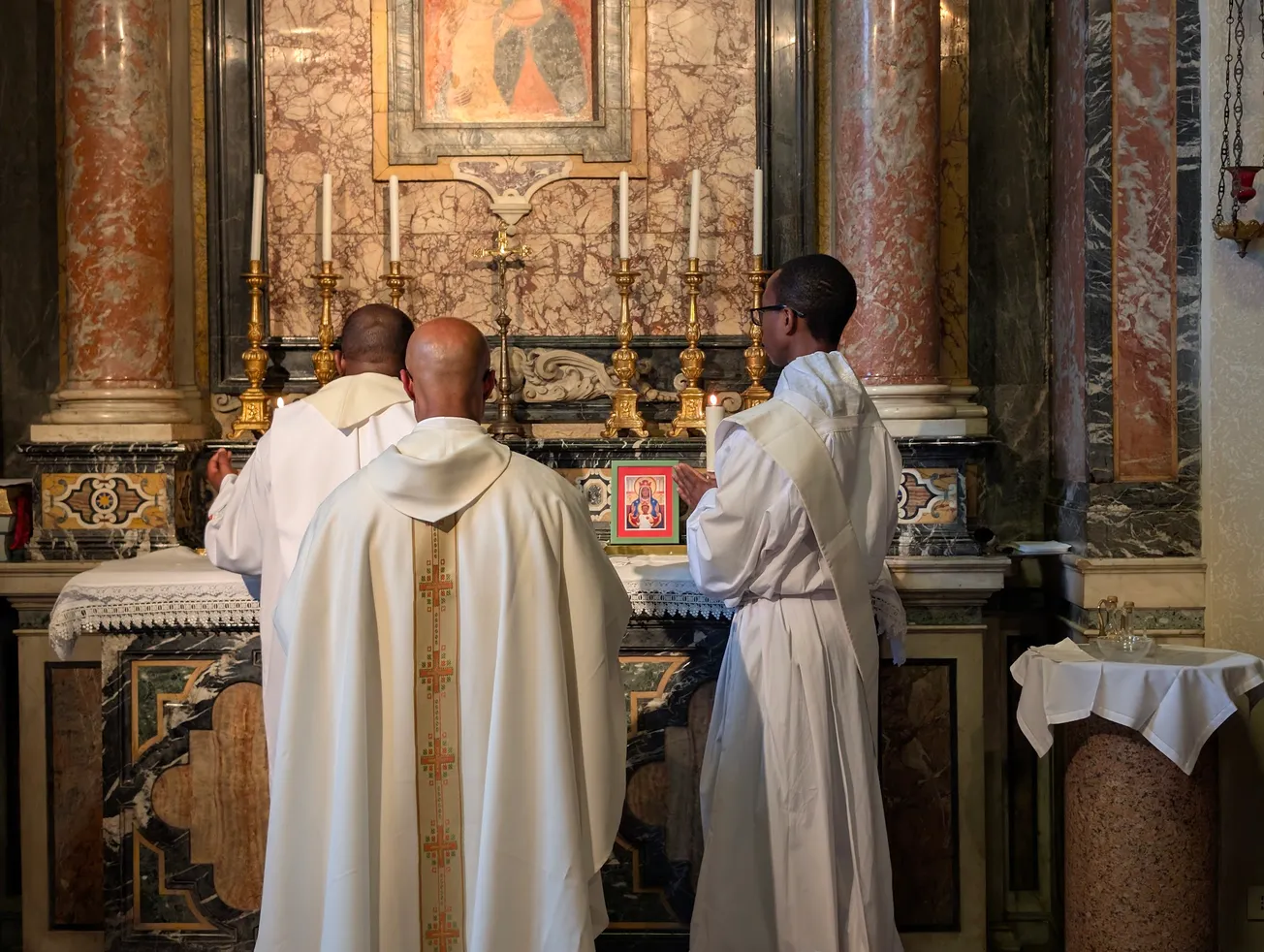The birth of the Black Catholic Messenger is, in my humble opinion, a momentous occasion for the Catholic Church. That it is happening during Black Catholic History Month is certainly no coincidence. In fact, it is undeniably from the hand of God. That all the right people and plans came together during a global pandemic to produce it is nothing short of a miracle, but is all the same a testament to God’s great gift of the internet and all the good things it can and does facilitate.
For example: today, as the first installment of their "Newvember" product drops every Tuesday this month, the United States Conference of Catholic Bishops (USCCB) released a series of prayer cards for the 6 African Americans currently "on the path to sainthood". They and their employees—especially the Assistant Director of African American Affairs, Donna Toliver Grimes—are to be commended for producing this holy occasion.
October 10 also marked a special occasion for the Catholic Church, when the first millennial “Blessed” was declared by the Vatican. The Church now confesses with full confidence that Bl Carlo Acutis has entered Heaven and is interceding on our behalf as fellow Christians and hopeful saints-to-be. It was truly momentous.
Also of note are the earthly deeds for which Bl Carlo is best-known. As mentioned, he was a millennial, and he just so happened to be a stereotypical one in at least one specific way: he was a true student of the Internet Age.
I first learned about him when a friend informed me of his dedication to Eucharistic miracles—namely his methodical documentation of them on the Internet. I don’t remember if I was even officially Catholic at the time of this revelation, but I remember thinking 1) That’s kinda strange, and 2) That’s kinda cool.
An Internet junkie myself, who got way ahead of himself in learning the ins and outs of computer systems and the internet at a young age—Bl Carlo and I were born almost exactly 5 months apart—I could at the very least appreciate that he was dedicated to his chosen area of emphasis in a way that was innovatively technological and, as such, internationally useful.
But it only hit me last night, after reading (and agreeing with) a tweet pointing it out, that an Italian teenager was beatified in 14 years while there are 6 African-American saintly hopefuls still waiting for the call after up to 167 years (in the case of one Venerable Pierre Toussaint). Miracle verifications aside, this conundrum makes me think the Internet-entwined legacy of Bl Carlo has a lot to say about modern Catholicism—especially Black Catholicism.
While my first reaction to the tweet was agreement and a visceral desire to grumble and point fingers, I quickly realized that I actually know better. You see, one thing many Catholics may not realize is that canonization costs money. Moolah. The mean, green, saint-ification machine.
OK, so it’s not actually that grimy (RIP, Johann Tetzel), but it remains a fact that the folks investigating the cause of sainthood for your favorite’s favorite do not, in fact, work for free. There are a litany of costs and fees that go into a saint becoming a saint (with the average beatification reportedly settling around half a million dollars). In 2020, that means postulators must have the donation link ready to go at all times. (More on that in a bit.)
In the bigger picture, it means that if we want Catholicism (and perhaps especially Black Catholicism) to keep “passing GO” in the Internet Age, we have to be, at some level, what folks all say Millennials and Zoomers ought not to be: always on that damn phone.
The Internet is not the future. The Internet is now. And when you control the Internet, you control the narrative. This can obviously be done poorly and with all the wrong intentions, but it doesn’t have to be.
I realized this several weeks ago when browsing Wikipedia, as I noticed that many pages covering people, figures, and organizations crucial to the story and development of Black Catholicism were stubs (i.e., short and clearly incomplete). Moreover, many important figures and institutions didn’t have pages at all (including “Black Catholicism” and the “Black Catholic Movement”, which I proceeded to create), and several existing pages were miscategorized or otherwise lacking in polish. A longtime Wikipedia editor myself, I got to work.
I realize that to some, this may seem like no big deal. It’s just Wikipedia. Right?
Wrong.
While it may not exactly click for the generation that grew up in the library and anywhere but on the Internet, Wikipedia is more than just the place you must “never cite”. It is what it claims to be: “The Free Encyclopedia”. The first result in virtually every Google search. The source full of sources. The ultimate paraphrase. The Church’s largely unexplored frontier.
As I started to see more and more the pressing issue of Black Catholicism on the Internet, I began to notice more holes. The USCCB, bless their hearts, long ago published a list of Black parishes on their website. Notice I did not say “all” Black parishes. Many are missing, apparently including some parishes run by the Josephites, who exclusively staff Black parishes. The process for requesting that missing parishes be added is woefully unclear. (And yes, I’ve tried. For now, just know that Oregon does in fact have at least one Black parish, and Los Angeles has more than four.)
Furthermore, it came to my attention last month that Servant of God Sr. Dr. Thea Bowman’s historic 1989 address to the US bishops, occurring at the height of her fame (and her terminal cancer), is posted on the USCCB YouTube page as “unlisted”—meaning it cannot be found on the internet except via a website, such as the USCCB African American Affairs page, or via direct link. As such, the 40-minute masterclass has amassed a scant ~1,700 views in 3 and a half years. (A short 4-minute clip from the address, posted by a third party in 2015, has nearly 20,000.)
Assuming this to be an awful mistake, I reached out to the USCCB on Twitter, where the account manager(s) are known to reply to interlocutors. At the time of this writing, I have yet to receive a response. In these two weeks of silence, their account has replied to a number of other tweets—including five (5) memes.
Ironically enough, the memes were at the request of the USCCB account itself, concerning the bishops’ annual meeting, which will be occurring virtually in a week or so. It was this same manner of meeting that Sr. Thea addressed some 30 years ago. Needed though that address may be in this trying year of 2020, it remains largely hidden by the USCCB on the Internet. (Thankfully, some generous soul did the holy work of Bl. Carlo and reposted it in its entirety on their personal channel this past June. Nearly 1,000 views already.)
(Update: after this story was published, the USCCB made their version of the video public.)
A few weeks ago, I learned that the USCCB page for the 6 African-Americans on the path to sainthood neglects to include the titles for all but two of them. Then I learned that only one of the hyperlinks actually goes to the correct guild page; three of the other five are dead links altogether. These errors appear to have made their way onto the new prayer cards in one way or another.
A similar National Black Catholic Congress page accurately includes all the aforementioned honorifics, but does only slightly better on the links (two correct; three dead). At least two of the functional guild pages appear to have no online donation links at all.
It is merely my opinion, but if we want to know why the Black sainthood causes are moving so slowly, look no further.
Given my experiences with the parish list and the USCCB Twitter, I didn’t bother going through my usual channels to try getting the websites updated. Simply put: the transition of Black Catholicism fully into the Internet Age is beyond overdue, but I’m simply not sure when or how it will occur. But for as long as the Lord allows, I and the Black Catholic Messenger will be in the thick of it.
I am a lifelong Christian, but a baby Catholic rather than cradle, so there are surely many more stories out there beyond my scope of knowledge or experience. To be sure: we will cover many more here in the Messenger. To be clear: we will not do so as a personal attack on anyone. The goal is awareness and progress, and principled internet journalism is one way that will (hopefully) get done.
Like Bl. Carlo, anyone can make a website. And like me, anyone can make edits on Wikipedia—on most pages, you don’t even need an account to do so. Moreover, anyone can see erasure—intentional or unintentional—for what it is, when it’s staring them directly in the face.
But the larger story is this: so long as we neglect the Internet as the primary source of information for the entire world’s exploration and enrichment of the faith, we do dishonor to the great gift of the Internet which God has given us. And so long as we allow Black Catholicism to be hidden away, under a bushel basket, we dishonor the Church itself—the dwelling place of God.
Does everyone need to become an Internet expert? No. (And shout-out to everyone giving it their best shot.) But what does need to occur is a do-what-you-can commitment by Catholics to enriching all the avenues of the faith, especially those which are more or less non-negotiable for major Catholic institutions and figures in 2020. Either we will represent ourselves on websites, online news, social media, and Wikipedia, or someone else will do it for us (and with probably far less charity/accuracy than we might like).
And so the Black Catholic Messenger emerges, in the light of all God has given, aiming to be a beacon of light itself. May it not be in vain.
Bl Carlo Acutis, pray for us!



